Banka Banka Station is a location in the Northern Territory of Australia, 100 kilometres north of
Tennant Creek along the Stuart Highway. The historic cattle station was the first operational pastoral lease in this region, and a supply
camp during World War II, It was occupied and run by the Ward family and is still the site of a mudbrick
homestead.
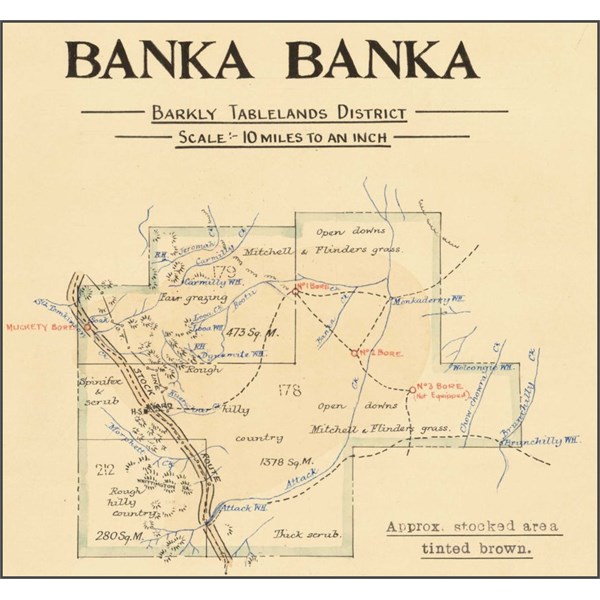
Northern Territory Pastoral Leases Map 1935
The Banka Banka mudbrick
homestead is a single story, rectangular building with a pitched roof consisting of a timber roof frame and corrugated metal roof sheeting, mudbrick walls, concrete floors, surrounded by a veranda supported by concrete posts. The building consists of three rooms. The
homestead, which was partly reconstructed in 2001, is of architectural interest for its extensive use of mudbrick. It represents an unusual construction material and technique for pastoral homesteads of this era.
Philip and Mary Alice Ward bought Banka Banka Station in 1941. Mary supervised the development of an extensive garden at the station. The
homestead was a regular stopping place for travellers. In 1945, Philip Ward was among the first to truck cattle by road. After her husband's death in 1959, Mary ran the station. Due to her efforts, a government school for Aborigines openened at Banka Banka in 1961. She was known as "The Missus of Banka Banka." In 1970, suffering ill health, she sold Banka Banka and moved to
Adelaide, where she died two years later.
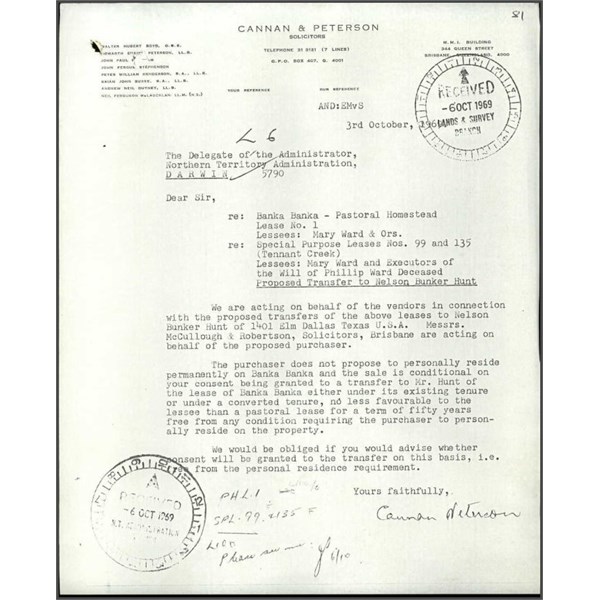
Transfer of Banka Banka leases to Nelson Bunker Hunt, USA 1969
Mary Alice Ward (1896-1972), teacher and pastoralist, was born on 1 September 1896 at Kooringa,
Burra, South Australia, eldest of eight children of
John McEntyre, an engineer from
Victor Harbor, and his wife Margaret Anne, née Kelleher. By 1904 the family had moved to the Western Australian goldfields, living first at Kalgoorlie and then
Coolgardie. Mary began teaching at Tunneys State School in June 1915, and gained her junior cadet training certificate in September next year. In 1918-24 she taught at Kalgoorlie, Boulder and Carlisle. Promoted to head teacher in 1924, she moved often—to Parkfield,
Pingrup, Cottesloe, Wyering, Keysbrook and Latham—before transferring to
Wyndham in 1932. On 27 December that year at the office of the district registrar,
Wyndham, she married Philip ('Ted') Ward, a stockman.
For two years the Wards lived at Jack Kilfoyle's Rosewood station, 120
miles South-East of
Wyndham. With Mary's brother Stuart they joined the gold-rush at
Tennant Creek, Northern Territory, in 1935. Prospecting at a
mine site that they called Blue Moon they struck gold, reputedly worth £80,000.

Philip Ward, Mary Ward, Mrs Mick Walsh (with baby Kathleen), at Blue Moon Mine 1935
In 1941 the Wards bought the cattle station Banka Banka, a property of almost two thousand sq.
miles located 60
miles North of
Tennant Creek. Mary supervised the development of an extensive garden, and during World War II Banka Banka supplied the army (which had a staging
camp nearby) with meat, eggs, fruit and vegetables.

Banka Banka Staging Camp info 2012
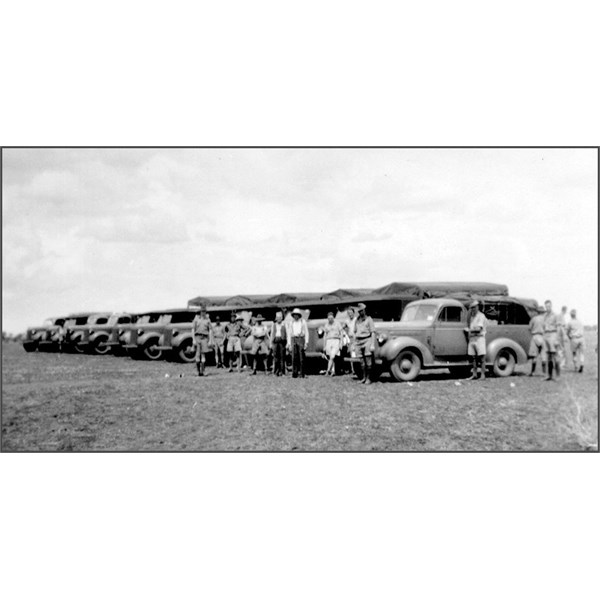
Convoy vehicles at Banka Banka, 1941
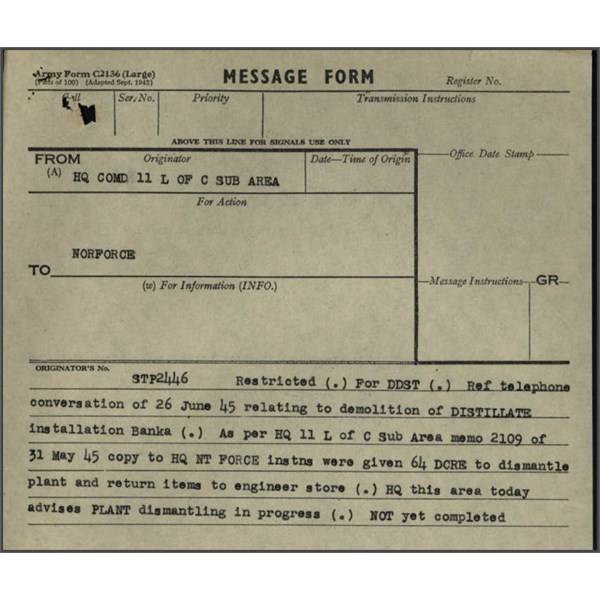
Demolition of Distallate Installation
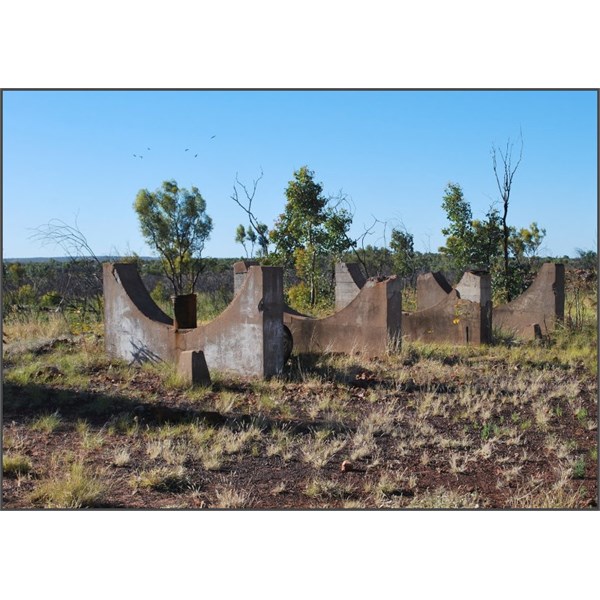
Diesel Tank mount, Banka Banka Staging Camp 2012
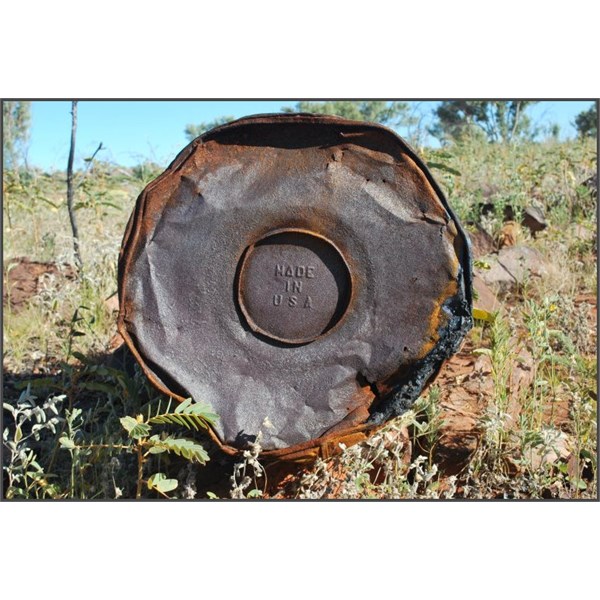
Made in USA, Banka Banka Staging Camp 2012
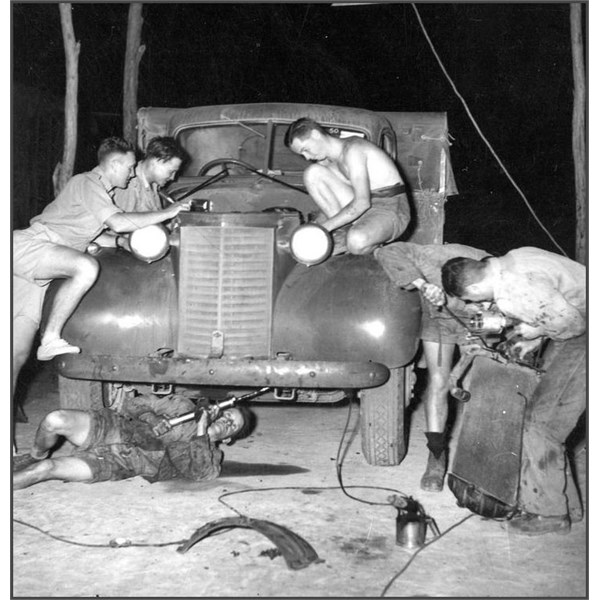
Military Vehicle repairs at Banka Banka Staging Camp

Items stolen from Banka Banka Staging Camp
The
homestead, close to the Stuart Highway, was a regular stopping place for travellers and Mrs Ward's hospitality became legendary. In 1945 Ted Ward was among the first to truck cattle by road, and in the early 1950s the Wards acquired Lilleyvale in western Queensland (soon replaced with Fermoy, near
Longreach) for use as a fattening station.
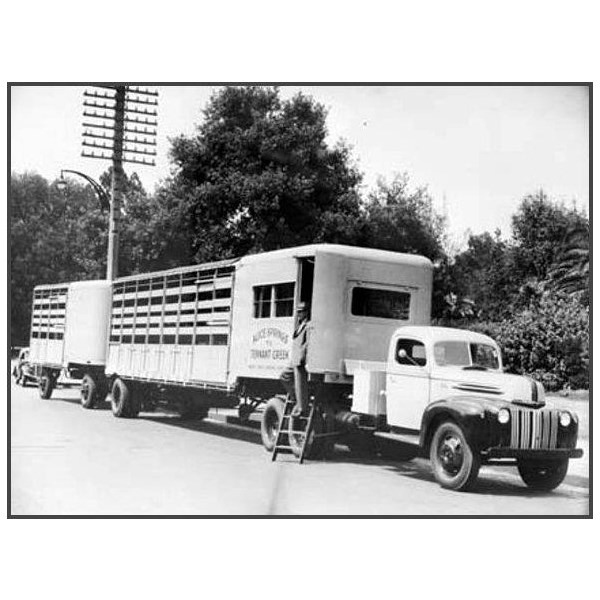
A road train owned and operated by Philip Ward, from Banka Banka Cattle Station 1947
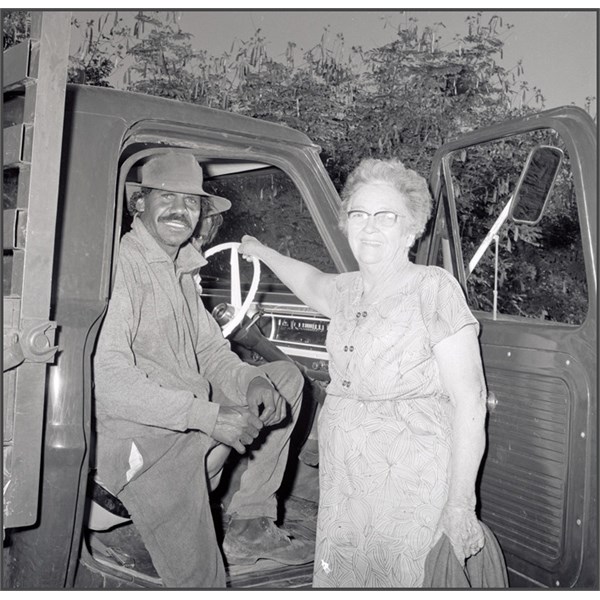
Mrs Mary Ward with Mr Ted Frank
Mrs Mary Ward with Mr Ted Frank (also known as Day Day) on Banka Banka cattle station near
Tennant Creek, Northern Territory. Ted Frank went to Banka Banka in about 1942 and did the mechanical work in the garage and cared for the water bores on the property until the early 1970s
Mary supervised the development of an extensive garden, and during World War II Banka Banka supplied the army (which had a staging
camp nearby) with meat, eggs, fruit and vegetables. The
homestead, close to the Stuart Highway, was a regular stopping place for travellers and Mrs Ward's hospitality became legendary.
.